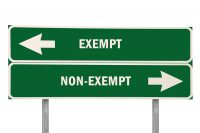5 Ways to Win with Your Hourly Workforce Data
Hourly-based organizations can collect more data than ever before, but many lack the tools to leverage that information and proactively manage workforce concerns. Although decisions about hours, pay, safety, and performance are critical to the workforce, too many have been left to “I think” rather than “the data tell me.”









